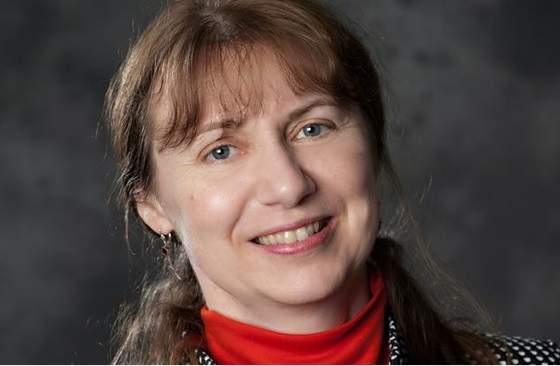ACM, the Association for Computing Machinery, has named Maja Matarić, the Chan Soon-Shiong Chair and Distinguished Professor of Computer Science at the University of Southern California, as the 2024-2025 ACM Athena Lecturer. Matarić, who is also a Principal Scientist at Google DeepMind, is recognized for pioneering the field of socially assistive robotics, including groundbreaking research, evaluation, and technology transfer, and foundational work in multi-robot coordination and human-robot interaction.
Initiated in 2006, the ACM Athena Lecturer Award celebrates women researchers who have made fundamental contributions to computer science.
Maja Matarić made fundamental contributions to autonomous cognition and interaction. Her early work was the first to demonstrate that behavior-based systems (BBS) could be endowed with representation and have the expressive power to plan and learn. Her well-known system, Toto, was the first BBS to learn maps online and optimize its behavior. It is highly cited and remains a milestone in robot control. Matarić pioneered distributed algorithms for scalable control of robot teams and swarms, enabling robot teams to collaborate on tasks including formations, exploration, and foraging.
Prior to her work, nearly all research was restricted to single robots or pairs. Her pioneering contributions to the theory and practice of multi-robot coordination showed that complex collective behaviors could be composed of basis behaviors in a principled way, bringing rigor to the then nascent discipline of distributed robotics. Her work on distributed robotics and multi-robot coordination and learning is the first to provide formal analysis of robot coordination approaches, elucidating formal and practical limitations, then contributing provably correct yet scalable multi-robot task allocation algorithms.
Socially Assistive Robotics
Matarić co-pioneered and her lab named the field of socially assistive robotics (SAR). SAR focuses on assistive human-robot interaction (HRI) enabling machines to help through social rather than physical support. It aims to gain novel insights into human behavior through human-machine interaction and to develop systems that provide personalized assistive HRI in convalescence, rehabilitation, therapy, training, and education. Matarić’s work has developed innovative HRI and SAR methods that modeled user engagement, personality, group moderation, and persuasive interaction dynamics in complex and uncertain real-world environments.
Her work is known for extensive evaluation studies in real-world settings (schools, rehabilitation centers, homes) with users with challenges, including in post-stroke rehabilitation, cognitive and social skills training for children with autism spectrum disorders, cognitive and physical exercise for elderly users and Alzheimer’s patients, study support for students with ADHD, and therapy support for students with anxiety.
Mentoring
Matarić has been a strong mentor and advocate for underrepresented groups. She has mentored early career women via CRA-W and helped to place large numbers of women and members of other underrepresented groups in graduate programs and faculty positions. Since 2019 she has also led USC Viterbi’s K-12 STEM Outreach Program, which included sending out students and faculty to mentor students in surrounding, largely low-income schools around Los Angeles, and running classes and workshops for high school teachers on campus at USC. Her book, The Robotics Primer, is geared toward K-12 students and undergraduates. The book explains both the principals of robots and offers a practical guide to building programmable hands-on robots.
“Maja Matarić has been one of the key figures responsible for significant advances in robotics in recent years,” said ACM President Yannis Ioannidis. “Her work with Toto laid the foundation for robot control, and the development of socially assistive robotics—which is poised to transform education, eldercare, and many other areas—owes a great deal to her innovations. The Athena Award also recognizes those who have dedicated themselves to mentoring. Matarić has not only guided her students at USC, but she has taken the initiative in introducing K-12 students to her field. As a mentor and as a champion of women in her field, Matarić stands in a league of her own.”
Photo: University of Southern California

